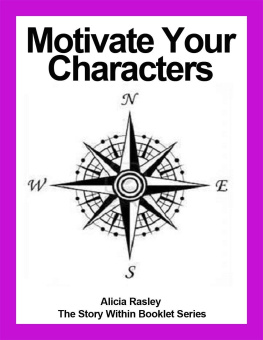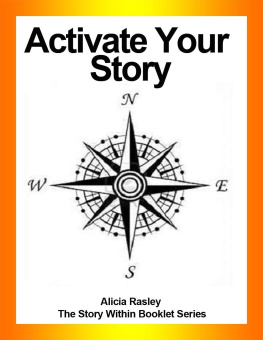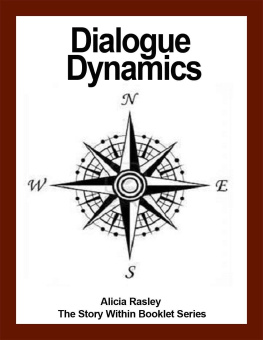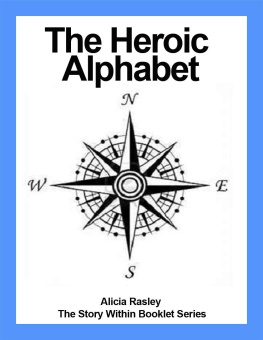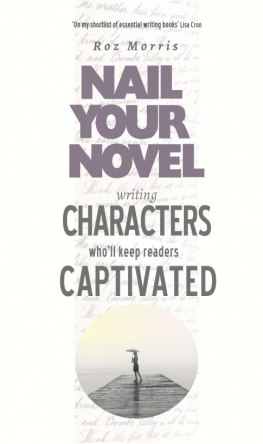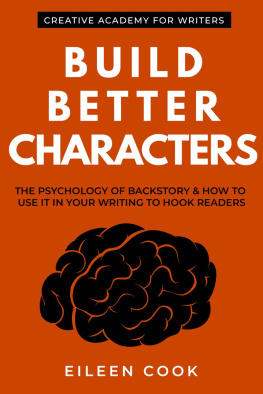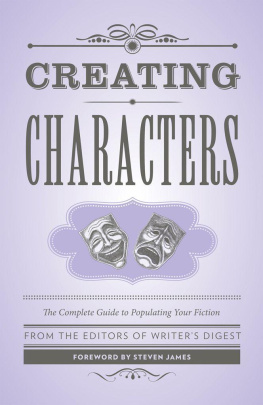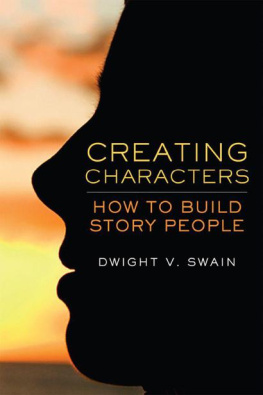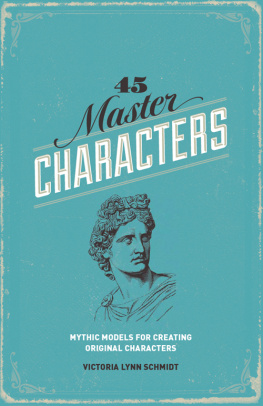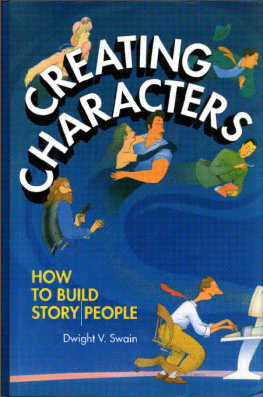The Story Within Booklet Series
All rights reserved. Midsummer Books, Indianapolis, IN 46220-2182
Edittorrent Blog

MOTIVATE YOUR CHARACTERS!
BY ALICIA RASLEY
Motivation is the point where character intersects with plot. Motivation is, ideally, what makes the character get involved in the events of the story, and what keeps that character from bailing out when things get dicey. Motivation engenders goals, and goals cause conflict, and conflict causes action, and pretty soon you have a terrific plot there-- and it all starts with your characters wanting something for some reason even they might not understand.
Motivation is fuel, powering the characters as its close relation conflict powers the plot .
Popular fiction is usually protagonist-oriented, that is, the plot centers on what the protagonist (central character) does, and charts how the protagonist changes in response to story events. So fictional characters can't be like so many of us in real life doing our best to maintain the status quo and to avoid change. They have to be given reason to act and to change and to grow. Otherwise, you'll end up either with characters with no reason to do anything, or with characters who do things without any reason. Either way, the plot will suffer, and the characters will be one-dimensional.
Plot is character in action, and motivation is what inspires characters to take action.
Motivation, however, cannot be simply a mechanical device, interchangeable from one character to another. If every character wants money, that indicates that all your characters are alike. If every character wants revenge in the same way, you're going to end up with characters who act in the same way. So individual characters require individualized motivations, and that's what we'll be working on.
The motivation should evolve from who this character is, and what she needs, and how she ought to grow.
In this booklet, I'll explore how you can use this element to spark your characters into action and force them into growth. That way you'll make sure your plot is not just something that happens to your characters, but happens because of them.
Here are six distinctions to keep in mind (they'll all be explained in time):
- Goal vs. motivation.
- Author motivation vs. character motivation.
- External motivation vs. internal motivation.
- Proactive motivation vs. reactive motivation.
- Backstory vs. forestory.
- Action vs. motivation.
MOTIVATION DEFINED: EXERCISE!
(Use these questions to define your own character's motivations. Free-write in the character's own voice. When a question asks about "you," that "you" refers to the character. Think about asking these questions to the character. What would he/she say in response?)
GOAL :
What do you want let's call it " IT"?
- What is your quest, your aim , or your mission?
- What do you hope to attain, achieve, or accomplish during the period of the book?
Example:
I want to solve this murder.
My aim is to prove that an outsider committed the murder.
I hope to achieve the release of Natasha from jail.
MOTIVATION:
- Why do you want the goal? At least, why when someone asks why you want this goal, what is your rational reason?
- Now go inside. What's the reason you might not be able to tell other people? If your best friend who knows you so well would be asked, "Why does (character) want this goal so much?" what would the answer be? (That is, you might say you want it for some rational reason, but also have a deeper emotional reason. Both are important!)
What inner need will the goal satisfy?
What do you think you will be after you get it?
What will happen after you get it?
What will happen to you if you don't get it?
Example:
1. I want to solve this murder becaus e I am the local physician, and it's my job to help keep the area safe and healthy. Okay, I also want to keep Natasha out of jail, because it sure looks like she's the one who did it.
2. Internal motivation. Well, I think I'm falling in love with Natasha, and I want to keep her safe, but also prove to myself that she's worthy of my love. I can't tell her that, though, can I?
- The inner need is to prove myself. I'm a physician, and not really a "warrior" or a "macho man." But I do have a special skill, and I think I can use that to find out from the corpse what the cause of death is and isn't.
- What will I be: If I solve the murder, I'll be the big heroand also Natasha's savior.
- What will happen: Natasha will have to love me.
- What will happen if I don't get the goal: I'll have to realize that this woman I love is a cold-blooded murderer.
ACTIONS:
- What you will do in order to get the goal?
What are you doing to achieve the goal?
What will you do when your goal is endangered?
- And/or what might you find yourself doing instead of what you ought to do to get it?
What are you doing that's endangering your achievement of your goal?
Example:
. I will use my medical knowledge to get the evidence needed to find the real murderer. Specifically, I'm going to examine the corpse, the supposed murder weapon, and the crime scene, and question witnesses. If the goal is endangered, I will get more secretive and hide my intention. I will use deception to learn more about the suspects and the victim.
EXTERNAL CONFLICT:
- Who else wants it.
- And/or who doesn't want you to get it.
- And/ or what gets in the way of getting it.
- And/ or what is diverting you from focusing on getting it. (Who is competing for this goal? Who thinks you shouldn't get it? Why? Who will get it if you don't? What are other obstacles?)
INTERNAL CONFLICT:
- What else you want.
- What value or need or desire or principle keeps you from doing all you can to get it.
- What you can't bring yourself to do even to get it.
- What you will lose if you do what you can't bring yourself to do.
(What else do you want? What do you want more ? What would you give up to get it? What won't you give up to get it? What won't you do to get it?)
INTERACTIONAL CONFLICT:
- Who will object if you get the goal.
- Or whose approval you will lose if you get it.
- Or who thinks it's bad for you.
- Or whom you want more than you want it. (Who else matters to you? If you had to make a choice, would you choose your goal or him/her? Why? Under what circumstances would you sacrifice this goal for this person?
INTERNAL MOTIVATION:
- What this symbolizes for you.
- Or what you really want when you say you want it.
- Why you do things that keep you from getting it.
(What does the goal mean to you? Who do you think will like you better if you get it? If you don't get it, what will you be? If you don't get it, what won't you be? What scruples or values or fears are getting in the way of you getting it?)
OBVERSE ASPECT:
1. The closely related motivation that you can shift to-- tends to be a matter of approach (negative or positive) or of degree (such as from pleasure to hedonism).
2. The opportunity for motivation growth-- for example, from guilt to responsibility, from revenge to justice.
(What's another way of approaching this situation? What is the extreme form of this motivation? What is the moderate form? If you were more or less mature, what would your motivation be? What more suitable or more unsuitable motivation can you shift to with a change of focus?)

